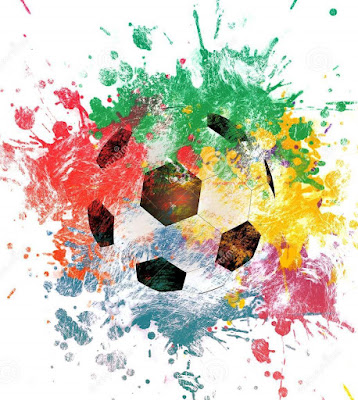The World Cup, Qatar 2022, has been going on since November 20 and will crown the new champion on December 18. Despite the numerous condemnations of the exploitation of foreign workers in the emirate, definitely legitimate but inconsistent with the silence that reigned when Russia organized its World Cup in 2018 (while bombing Syria and killing 20 thousand Syrian civilians in three years), the great success of the event is already enacted and calls for a boycott have failed.
In any case, calling for a boycott of major sports competitions in general and Football in particular has never been successful. For what game enthusiasts would boycott the most anticipated (and most funded and sponsored) event on the planet? How can we do without one of the few sources of euphoria and happiness that "resurrects" childhood and creates the most intense emotions for billions of people for almost a month?
However, if the boycott is not a solution, the ethical and legal question of the fundamental rights of workers must not be forgotten. The pressure of human rights organizations must continue to change laws and practices, so that the stadiums remain, during the World Cup and all events, temples of innocent cosmic happiness, of embraces between strangers united and equal for 90 minutes.
As for Football, it remains "non-boycottable" especially for what makes its exceptionality, even its very essence: the beauty of the game and the most powerful emotional charge possible that it offers to its fans wherever they are.
The sport of missed opportunities and universal expectations
Football brings immense pleasure, but also concerns and tensions shared until the end of a match, an attack, the trajectory of a ball or a magic dribble. It imposes on men and women in the stadiums or behind the television sets similar expectations and allows them to celebrate goals at moments of madness that are always unique and often surprising, even if hoped for. It makes them "suffer" before the delivery, exult in joy or explode with ephemeral anger, waiting for a new encounter.
All this without ever erasing the differences in the appreciations, because no two people watch a game or tell it in the same way. The interpretations of the goal attempts, the frustrations of a bad shot or a bad pass, the sighs caused by a failure or a referee's "injustice", the empathy tinged with admiration for the goalkeeper in his solitude, his helplessness or his heroic saves are always experienced at different rates and expressed according to the temperaments of each person. A bit like the players themselves, facing the challenge, welded, and disciplined in a rigorous collective without sacrificing their individual freedom, creativity, and bursts of mood when the "artists" of their teams shine.
It must also be said that Football is "the sport of missed opportunities"
par excellence! Goals, shots and beautiful gestures are the rare exceptions
that we expect throughout the matches, during which imperfection often reigns.
What would be the use of a sport of combat, speed, technique, concentration,
organization and improvisation if all its gestures were successful?
Thus, waiting for the surprise, suffering to be rewarded, and always remaining hungry is one of the secrets of this universal "religion", whose repetitive rituals hardly affect the intensity of emotions and the fervor of passion.
A matter of life and death?
In a match, no two scenarios are alike, even if the match is replayed. Like Tarab or Jazz for music lovers, the possibilities and variations of melodies that each concert produces are infinite.
Commenting that and talking about dynamics and actions that we observed, or simply recounting the contexts of the games and our own contexts when we watched them are other matters that bring Football lovers together.
Bill Shankly, the legendary Scottish manager of Liverpool once said:
"football is not a matter of life and death, it is something much more
important than that".
We can only agree with him.
Ziad Majed
Originally published in French in L'Orient Littéraire
